- Home
- Robin Cook
Vector Page 4
Vector Read online
Page 4
Jack felt frustrated and irritable. He could not believe Laurie was doing this to him. Grumbling under his breath, he pushed off the wall and went back to get Papparis’s specimens. He wanted to get them up to Agnes Finn so that she could run a fluorescein antibody test for anthrax.
____
TWO
Monday, October 18
9:30 A.M.
Chert! Chert! Chert!” Yuri Davydov shouted. He beat the top edge of the steering wheel of his yellow Chevy Caprice taxi with the base of his right fist. Particularly when he was angry, Yuri reverted to his Russian mother tongue, and at the moment he was furious. He was stuck in bumper-to-bumper traffic and surrounded by a cacophony of automobile horns. Ahead of him was a stalled blur of yellow cabs with activated red brake lights. Worse yet, the next intersection was jammed with cars going perpendicular to his, so despite the green light, Yuri was stuck in hopeless gridlock.
The day had started badly during Yuri’s first fare. As he was heading down Second Avenue, a bicyclist kicked a dent in the passenger-side door of Yuri’s cab after complaining that Yuri had cut him off. Yuri had jumped out and lavished the jerk with a string of Russian expletives. Yuri had initially intended on being more physically aggressive but quickly changed his mind. The cyclist was his height, squarely built, as angry as Yuri, and obviously in far better physical shape.
At age forty-four, Yuri had let himself go. He was overweight and soft, and he knew it.
A slight thump coming from the rear of his car jolted Yuri. He leaned out his open window, shook his fist, and with his heavy accent, cursed the taxi driver behind him for bumping his car.
“Up yours,” the driver called back. “Move!”
“Where do you want me to go?” Yuri yelled. “What’s the matter with you?”
Yuri settled back into his beaded seat. He ran an anxious hand through his thick brown, almost black hair. Reaching up, he turned his rearview mirror to look at himself. His eyes were red and his face was flushed. He knew he had to calm down, otherwise he’d have a coronary. What he needed was a shot of vodka.
“What a joke!” Yuri muttered angrily in Russian. He wasn’t referring to the current traffic situation but rather to his whole life. Metaphorically his life had a lot in common with the stalled traffic. It was dead in the water, and as a result, Yuri was completely disillusioned. By sad experience he now knew that the enticing American dream that had been his driving force was a sham, one foisted onto the world by the American Jewish-dominated media.
Ahead the cars began to move. Yuri lurched his car forward, hoping at least to get through the bottled-up intersection, but it was not to be. The car in front stopped short. Yuri was forced to do likewise. Then the taxi behind him hit him again. This second collision, like the first, was merely a bump, certainly not enough to do any damage, but for Yuri it added insult to injury.
Yuri stuck his head out the window again. “What the hell is the matter with you? Is this your first day driving?”
“Shut up, you goddamn foreigner,” the driver behind yelled back. “Why don’t you take your ass home to wherever the hell it was you came from.”
Yuri started to respond but changed his mind. He settled back into his seat and exhaled noisily like a punctured tire deflating. The driver’s comment had unwittingly awakened a sense of toska that descended over Yuri like a heavy wool blanket. Toska is a Russian word that connotes melancholy, depression, yearning, anguish, weariness, and nostalgia suffered all at once in the form of deep, psychic pain.
Yuri stared ahead with unseeing eyes. For the moment the disillusionment and anger about America was swept away by an evocative reminiscence. All at once an image popped into his mind of himself and his brother going to school on a crystalline, frosty morning in his home city of Sverdlovsk, USSR. In his mind’s eye he could see the communal kitchen with its conviviality, and in his heart he could remember the pride of being part of the mighty Soviet Empire.
Of course there had been some deprivations under the Communist regime, like occasionally having the women wait in line for milk and other staples. But it hadn’t been as bad as people had said or as bad as the fools here in America wanted to believe. In fact, the equality for everyone, excluding those high in the party, had been refreshing and conducive to friendship. There certainly had been less social conflict than here in America. At the time, Yuri didn’t realize how good it had been. But now he remembered, and he was going home. Yuri was going back to Rossiya-matoshka, or little mother Russia. He’d made that decision months earlier.
But he wasn’t leaving until he had had his revenge. He’d been deceived and denied. Now he would strike back in a way that would get everyone’s attention in this smug, fraudulent country. And once home in Russia, he would offer his revenge as a gift to Vladimir Zhirinovsky, the true patriot of rodina, the motherland, who would surely return the glory of the USSR if given the chance.
Yuri’s musings were rudely interrupted by one of the back doors of his cab being yanked open. A passenger tossed in an ostrich briefcase and then climbed in after it.
Irritably Yuri regarded his fare in the rearview mirror. He was a small, mustached man in an expensive Italian suit, white shirt, and silk tie. A matching pocket square ballooned out of his pocket. Yuri knew the man must be a businessman or a banker.
“Union Bank, 820 Fifth Avenue,” the man said. He sat back and flipped open a cellular phone.
Yuri continued to stare at the man. He saw something he’d not seen at first. The man was wearing a yarmulke.
“What’s the matter?” the man asked. “Are you off duty?”
“No, I’m on duty,” Yuri said morosely. He rolled his eyes before turning the meter on and then gazing out at the stalled traffic. It was just what he needed: a Jewish banker, one of those creeps running the world into the ground.
While the man made a call, Yuri was able to inch ahead by one car length. At least now he was on the brink of the troublesome intersection. He drummed his fingers on the steering wheel. He toyed with the idea of telling the Jew to get the hell out of his cab. But he didn’t. At least the creep was paying for him to sit there in traffic.
“Whoa, a lot of congestion,” the man said after he’d finished his call. He leaned forward and poked his head through the gap in the Plexiglas divider. “I could walk faster than this.”
“Be my guest,” Yuri said.
“I got time,” the man said. “It feels good to sit down for a moment. Luckily my next meeting isn’t until after ten-thirty. Do you think you can get me to my destination by then?”
“I’ll try,” Yuri said indifferently.
“Is that a Russian accent?” the man asked.
“Yes,” Yuri said. He sighed. This guy was going to drive him mad.
“I suppose I could have guessed by reading your name off the taxi license,” the man said. “What part of Russia are you from, Mr. Yuri Davydov?”
“Central Russia,” Yuri said.
“Very far from Moscow?”
“About eight hundred miles east. In the Ural Mountains.”
“My name is Harvey Bloomburg.”
Yuri glanced up at his fare in the rearview mirror and shook his head imperceptibly. He was mystified why people like Harvey wanted to tell him personal things. Yuri couldn’t have cared less what Harvey’s name was.
“I just got back from Moscow a week or so ago,” Harvey said.
“Really?” Yuri questioned. He perked up. It had been a long time since Yuri had been there. He remembered the delight he’d felt the first time he’d visited Red Square, with the Cathedral of St. Basil sparkling like an architectural jewel. He’d never seen anything so beautiful or moving.
“I was there for almost five days,” Harvey said.
“You’re lucky,” Yuri said. “Did you enjoy yourself?”
“Ha!” Harvey voiced with disdain and a wave of his hand. “I couldn’t wait to get out. As soon as my meetings were over I fled to London. Moscow is out of control
, what with the crime and the economic situation. The place is a disaster.”
Yuri felt a renewed pang of anger from the knowledge that the current problems ravaging Russia had been created by the likes of Harvey Bloomburg and the rest of the worldwide Zionist conspiracy. Yuri could feel his face flush, but he held his tongue. Now he really needed a glass of vodka.
“How long have you been here in the States?” Harvey asked.
“Since 1994,” Yuri grumbled. It had only been five years, but it felt like ten. At the same time Yuri could remember the first day he’d arrived as if it had been yesterday. He’d flown from Toronto, Canada, after a three-day problem with U.S. immigration, which resulted in his obtaining only a temporary visa.
Yuri’s odyssey to get to America had been grueling and had taken over a year. It had started in Novosibirsk in Siberia, where he’d been working at a government company called Vector. He’d been there for eleven years but had lost his job when the institution was downsized. Luckily he’d saved a few rubles before being terminated, and by a combination of plane, train, and accommodating truck drivers, he’d made his way to Moscow.
In Moscow, disaster struck. Because of the sensitive nature of his previous job, the FSB (the successor to the KGB) was notified when he applied for an international passport. Yuri was arrested and thrown into Lefortovo Prison. After a number of months, he managed to get out of prison by agreeing to work at another government facility in Zagorsk. The problem was that they didn’t pay him, at least not in money. He was given vodka and toilet paper in lieu of cash.
Fleeing in the dead of night on the evening prior to a midwinter holiday, he walked and hitchhiked the thousand miles to Tallinn, Estonia. It was a terrible trip, full of setbacks, illnesses, injury, near starvation, and unimaginable cold. It was the type of hardship that the armies of Napoleon and Hitler had experienced with disastrous results.
Although the Estonians were less than friendly to him as an ethnic Russian, and some Estonian youths had beaten him up one night, Yuri was able to earn enough money to buy fake papers that got him a job on a freighter plying the Baltic. In Sweden he jumped ship and applied for refugee status.
Sweden questioned the validity of his being a refugee but permitted him to stay temporarily. He was allowed to work at menial jobs to earn enough money to book a flight to Toronto and then to New York. When he finally arrived on U.S. soil, he bent down like the Pope and kissed the ground.
There were many times during the long, desperate quest to get to New York that Yuri was tempted to give up. But he didn’t. Throughout the whole ordeal he was driven by the promise of America: freedom, riches, and the good life.
A sneer spread across Yuri’s face. Some good life it turned out to be! It was more like a cruel joke. He was driving a cab twelve, sometimes fourteen hours a day just to survive. Taxes, rent, food, and health care for himself and the fat wife he’d had to marry for a green card were all killing him.
“You must thank Almighty God you got out of Russia when you did,” Harvey said, unaware of Yuri’s state of mind. “I don’t know how the people are coping.”
Yuri didn’t respond. He just wanted Harvey to shut up. Suddenly the traffic opened up. Yuri stomped on the gas. The cab shot forward, throwing Harvey back against the rear seat. Yuri gripped the wheel and hunkered down. The tires screeched.
“Hey, my meeting’s not important enough to risk death,” Harvey shouted from the back seat.
Approaching the next intersection and a red light, Yuri hit the brakes. The car started to fishtail. Yuri expertly turned into a skid. The cab shot between a bus and a parked van, coming to an abrupt halt behind a garbage truck.
“My God!” Harvey called through the Plexiglas divider.
“What kind of work did you do back in Russia? Don’t tell me you were a race car driver.”
Yuri didn’t answer.
Harvey moved forward. “I’m interested,” he said. “What did you do? Last week I had a Russian cab driver who taught mathematics before coming over here. He said he was trained as an electrical engineer. Can you believe that?”
“I can believe it,” Yuri said. “I was trained as an engineer myself.” Yuri knew he was exaggerating, since he’d been a technician, not an engineer, but he didn’t care.
“What kind of engineering?” Harvey asked.
“Biotechnological,” Yuri said. The light changed and he pressed down on the accelerator. As soon as he could, he got out from behind the garbage truck and headed uptown, trying to get in sync with the lights.
“That’s an impressive background indeed,” Harvey said. “How come you’re still driving a cab? I would think your skills would be in demand. Biotechnology is one of the fastest-growing fields in all of industry.”
“There’s a problem with getting credit for my education,” Yuri said. “It’s what you Americans call a Catch Twenty-two.”
“Well, it’s a shame,” Harvey said. “My advice is for you to keep trying. It’ll be worth it in the end.”
Yuri didn’t answer. He didn’t have to put up with the indignity of trying any longer. He wasn’t staying.
“Ah, it’s a good thing that we won the Cold War,” Harvey said. “At least the Russian people have a shot at prosperity and basic freedoms. I just hope they don’t screw it up.”
Yuri’s irritation changed to rage. It drove him crazy to have to listen constantly to the falsehood that America won the Cold War and broke up the Soviet Empire. The Soviet Union had been betrayed from within: first by Gorbachev and his stupid Glasnost and Perestroika, and then by Yeltsin for no other reason than to indulge his ego.
Yuri gunned the engine of the taxi and roared uptown, weaving in among the traffic, running lights, and intimidating pedestrians.
“Hey!” Harvey shouted. “Slow the hell down! What’s the matter with you?”
Yuri didn’t respond. He hated Harvey’s smug superiority, his expensive clothes, his ostrich briefcase, and most of all his stupid little hat he had pinned to his scraggly, thinning hair.
“Hey,” Harvey yelled. He knocked on the plastic divider. “Slow down or I’m calling the police.”
The warning about the police penetrated Yuri’s fury. The last thing he wanted was a run-in with the authorities. Yuri eased up on the accelerator and took a deep breath to calm himself. “Sorry,” he said. “I was just trying to get you to your meeting on time.”
“I’d prefer to arrive alive,” Harvey snapped.
Yuri kept his speed within the normal limits while he worked his way over to Fifth Avenue. Once there he headed south for less than two blocks. He pulled up in front of the Union Bank, stopped, and turned off the meter.
Harvey lost no time in getting out of the cab. While standing on the sidewalk he counted out the fare to the penny and plopped the cash into Yuri’s waiting hand.
“No tip?” Yuri asked.
“You deserve a tip like I deserve a poke in the eye with a sharp stick,” Harvey said. “You’re lucky I’m paying you at all.” He turned and headed for the revolving door of the fancy granite and glass bank building.
“I didn’t expect a tip from a Zionist pig anyway,” Yuri yelled after him.
Harvey flipped the cab driver the finger before disappearing from sight.
Yuri closed his eyes for a moment. He had to get control of himself before he did something stupid. He hoped to hell that Harvey Bloomburg lived on the Upper East Side because that was the part of the city that Yuri was going to devastate.
The next thing Yuri knew the back door to his cab was pulled open and someone climbed in. Yuri spun around.
“I’m off duty,” he said. “Get out!”
“Your off-duty sign’s not on,” the woman said indignantly. She had a Louis Vuitton briefcase on one side and a leather laptop satchel on the other.
Yuri reached over to the proper switch and flicked it. “It’s on now,” he growled. “Out!”
“Oh, for crissake,” the woman muttered. She grabbed her ba
gs and got out of the cab. As a passive-aggressive gesture, she left the rear door ajar. She stepped out into the street, treated Yuri to a condescending look, then hailed another taxi.
Yuri stuck his hand out the driver’s side window and gave the open door a push. It closed without a problem. He then pulled out into the traffic and headed downtown. For the moment he was in no mood to put up with any more haughty businesspeople, particularly Jewish bankers. Instead he wanted to revel in thinking about his revenge, and to do that he needed corroboration that his agent was as deadly as he imagined. That meant checking up on Jason Papparis.
The office for the Corinthian Rug Company was on Walker Street south of Canal. It was situated in a ground-level storefront with a couple of faded geometrically patterned Turkish rugs and goat hides in the window. Yuri slowed as he approached. The door had lettering stenciled in gold. It was closed, but Yuri knew that didn’t mean anything. When Yuri had initially scouted the concern by making innumerable drive-bys, he’d always found the door closed.
Pulling into a loading area across the street from where he could watch the entrance, Yuri put his car in park. He’d decided to wait although he didn’t know exactly what he was waiting for. Somehow he had to find out about Mr. Jason Papparis’s state of health. Yuri was certain the man had gotten the ACME Cleaners envelope on Friday at the very latest.
The waiting calmed Yuri, and the thought of the next step in his grand scheme excited him. He’d be able to tell Curt Rogers that the anthrax was potent. That would mean that the only thing left to test would be the botulinum toxin. For the fateful day, Yuri had decided on two agents rather than one. He wanted to eliminate any possibility of technological screw-ups. The two agents killed in completely different ways, even though both were to be aerosolized.
Reaching under his seat and pushing his defensive tire iron out of the way, Yuri pulled out his flat pocket flask. He deserved a shot of vodka. After making sure no one was watching, he took a quick slug of the fiery fluid. He breathed out a sigh of relief as a sensation of warmth spread deliciously through his body. Now he felt even calmer. He was even capable of appreciating that there had been some recent bright spots in his life.

 Shock
Shock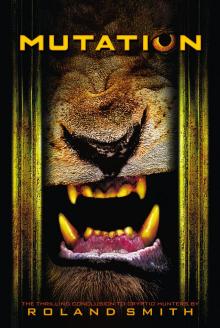 Mutation
Mutation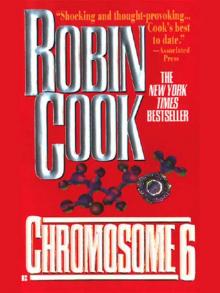 Chromosome 6
Chromosome 6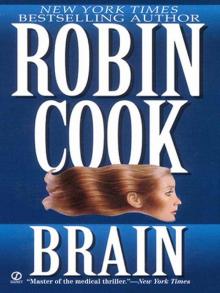 Brain
Brain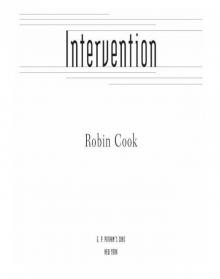 Intervention
Intervention Invasion
Invasion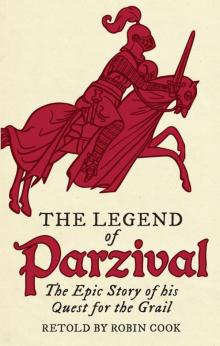 The Legend of Parzival: The Epic Story of His Quest for the Grail
The Legend of Parzival: The Epic Story of His Quest for the Grail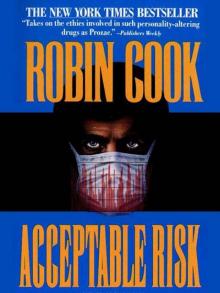 Acceptable Risk
Acceptable Risk Cell
Cell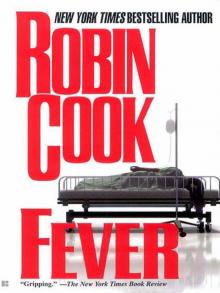 Fever
Fever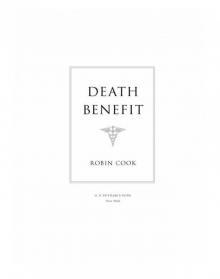 Death Benefit
Death Benefit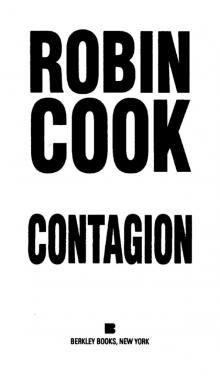 Contagion
Contagion Mindbend
Mindbend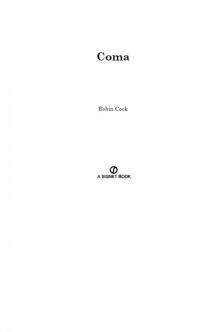 Coma
Coma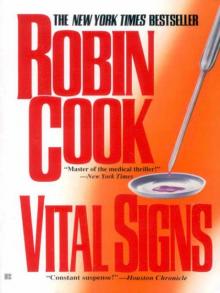 Vital Signs
Vital Signs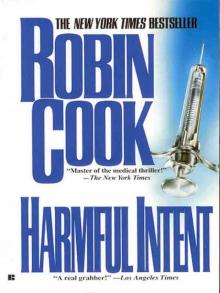 Harmful Intent
Harmful Intent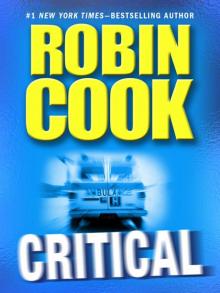 Critical
Critical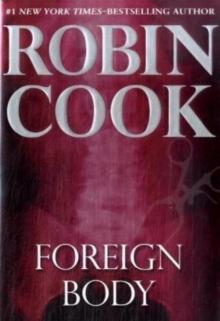 Foreign Body
Foreign Body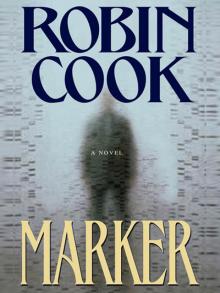 Marker
Marker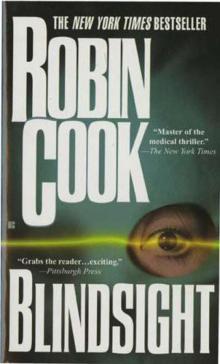 Blindsight
Blindsight Terminal
Terminal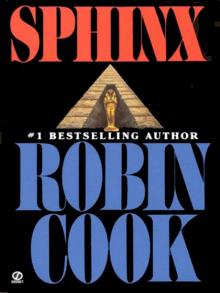 Sphinx
Sphinx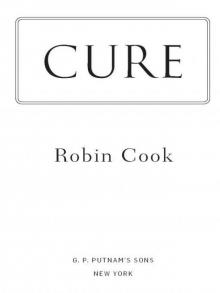 Fatal Cure
Fatal Cure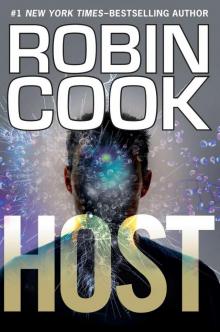 Host
Host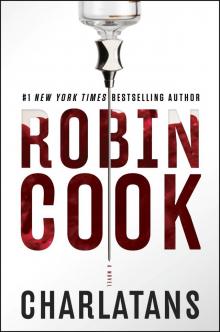 Charlatans
Charlatans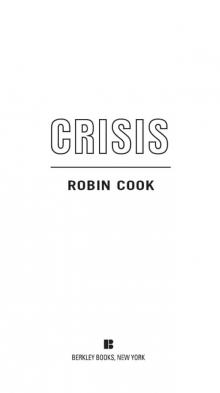 Crisis
Crisis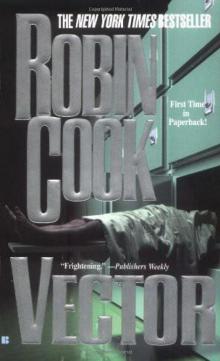 Vector
Vector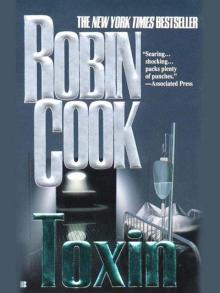 Toxin
Toxin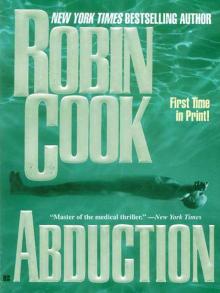 Abduction
Abduction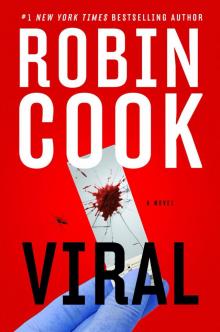 Viral
Viral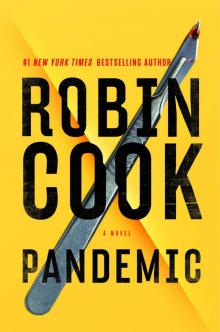 Pandemic
Pandemic Outbreak
Outbreak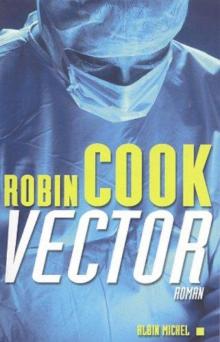 Vector js&lm-4
Vector js&lm-4 Godplayer
Godplayer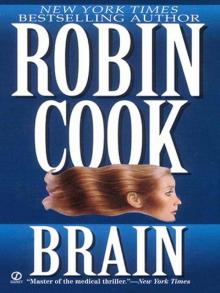 A Brain
A Brain Year of the Intern
Year of the Intern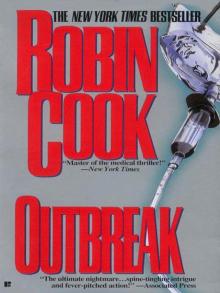 Outbreak dmb-1
Outbreak dmb-1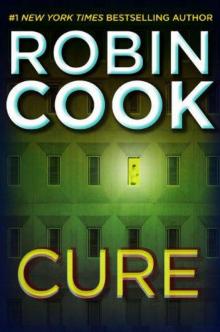 Cure
Cure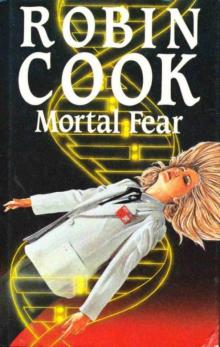 Mortal Fear
Mortal Fear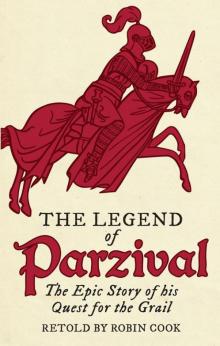 The Legend of Parzival
The Legend of Parzival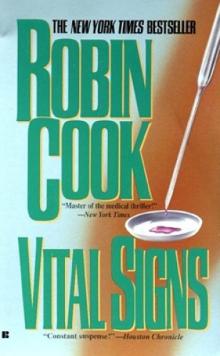 Vital Signs dmb-2
Vital Signs dmb-2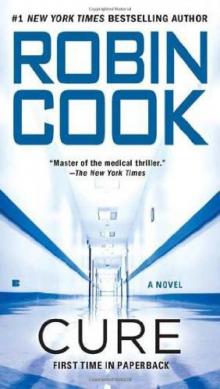 Cure (2010) sam-10
Cure (2010) sam-10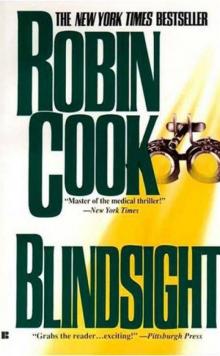 Blindsight sam-1
Blindsight sam-1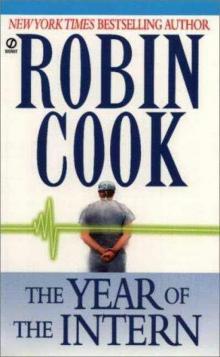 The Year of the Intern
The Year of the Intern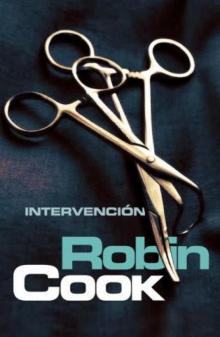 Intervention sam-9
Intervention sam-9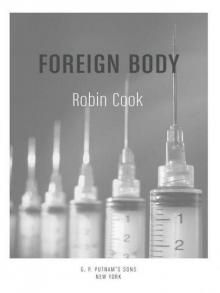 Foreign Body sam-8
Foreign Body sam-8